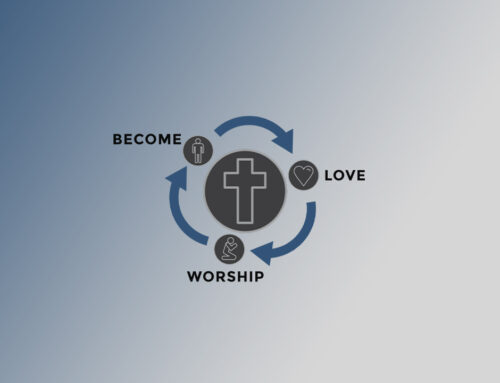Pause for just a moment and reflect on your day.
What have you thought about? What has taken residence in your thinking?
Is it pure? Is it virtuous? Twisted perhaps? Ungodly? Maybe you’ve been obsessed with sports, entertainment, or the latest friendship drama.
But one thing is for sure — our thinking is an expression of our nature.
A Tree
When you look at a tree, you see the literal fruit of its nature. If it’s an apple tree, you expect to see apples. An orange tree will naturally produce oranges. A pear tree? Yep, you guessed it, pears.
In like manner, our thoughts are “fruits” of our nature. While we can’t walk up and just view your fruit, the truth is, what you think about will often be an expression of the nature inside you.
Jesus often went beyond the external-physical expression and dealt with the internal heart, motives, thoughts, and attitudes. Yes, what we do mattes, but how we think is also of great importance.
Whatever
In Philippians 4:8, Paul is exhorting the Philippians on not just how to live, but how to think. He defines several attributes (boundaries, if you will) of what you are to think upon. Listen to what Paul says …
Finally, brethren, whatever things are true, whatever things are noble, whatever things are just, whatever things are pure, whatever things are lovely, whatever things are of good report, if there is any virtue and if there is anything praiseworthy — think on these things.
In this six-part series, we are going to dive into what Paul is saying and how we are to set our minds on things above, not on things on the earth (as Paul says in Colossians 3:2).
Part 1: Whatever (overview)
In part one, discover how dancing lessons can give us insight into how we can think properly. This study examines the context of Philippians 4:8 and looks at an overview of Paul’s list of “whatevers.”
Part 2: Whatever is True
Pilate asked, “what is truth?” — a question we must all ask ourselves as well. In part two, we examine what Paul means by thinking upon truth and discover how truth sets us free from all lies.
Part 3: Whatever is Noble (honest)
Honesty and nobility seem like something from days of knights and princesses, but it is a key attribute of a Christian’s thinking. In part three, we find out how Christians can live honorable and noble in today’s world.
Part 4: Whatever is Just & Pure
If you thought nobility was something from days gone by, looking at our current culture, we are forced to wonder if purity and justice can be found anywhere. In part four of our ongoing study of Philippians 4:8, we discuss a Christian thought process that is just and marked by purity. Can Christians live in constant purity? Yes, they can.
Part 5: Whatever is Lovely & of Good Report
What does it mean to live and think upon that what is lovely and of good report? In part five, we find out.
Part 6: Whatever is Virtuous & Praiseworthy
Paul concludes his “whatever” list by saying that we should ponder, think, and meditate upon whatever is virtuous & praiseworthy. The grandeur of scope and the awe-inspiring reality of such thinking is far greater than you could hope for or imagine—as if finds it fulfillment in the Person of Jesus Christ.
Disclosure of Material Connection: Some of the links in the post above are “affiliate links.” This means if you click on the link and purchase the item, deeperChristian will receive an affiliate commission (with no additional cost to you). It is a great way to support the work and ministry of deeperChristian. Regardless, we only recommend products or services we use personally and believe will add value to our readers. We are disclosing this in accordance with the Federal Trade Commission’s 16 CFR, Part 255: “Guides Concerning the Use of Endorsements and Testimonials in Advertising.”













